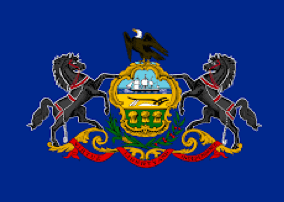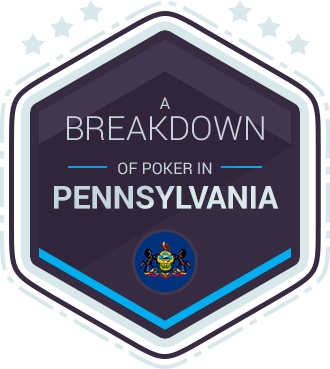
Overview
Pennsylvania is the fourth state to officially accept legal online poker and online casinos. The Keystone State is joining New Jersey, Delaware, and Nevada in creating new opportunities for poker players and casino aficionados in 2019 and beyond.
| Date of legalization | 10-30-2017 |
|---|---|
| Online population | 300+ players (estimated) |
| Legal age to play online poker | 21 |
| Who signed online poker into law | Pennsylvania Governor Tom Wolf |
| Online poker bill ID | H 271 |
| Online poker sites that accept players from Pennsylvania: |
Best Online Poker Sites for Pennsylvania

BetOnline.ag
- Trusted by US Players Since 2001
- Huge Bad Beat Jackpots
- Fully Licensed and Regulated

Ignition Poker

Americas Cardroom

Intertops Poker

Bovada

Juicy Stakes

Sportsbetting.ag
- Population: 12,810,000
- Legal Online Poker Age: 21
- Legal Poker Room Age: 21
- Capital: Harrisburg
- Governor: Tom Wolf
When it comes to online poker and gambling in Pennsylvania, all good things come in 13. Readying up for a full-scale launch, the Keystone State now offers 13 licenses for each major vertical of the online gaming experience, including:
- online poker
- online slots
- table games
Originally, the industry was preparing for a Q1 – Q2, 2019 launch, but the time window has been pushed back to June, 2019, because the US Department of Justice (DOJ) issued a new Opinion on the Wire Act on January 24, upsetting some of the progress.
A Quick Look at Online Poker and the Wire Act in PA
At first, many thought that the new Wire Act Opinion would be just that – an opinion.
While the original plan has changed somewhat, there’s no indication to suggest that Pennsylvania is giving up on online poker.
Nobody really knows with certainty what will follow, but many states besides PA have begun building a strong opposition.
We do know what has already happened, though and these months the Pennsylvania Gaming Control Board (PGCB) is taking time to consider its next move – which may be legally challenging the DOJ as others have already suggested, and in the case of New Hampshire – done.
So, with this in mind, let’s look at the state of legal online casinos and poker card rooms in PA right now.
Pennsylvania’s Online Poker Venues
The PGCB has managed to sell almost all of its available licenses, with a handful still gathering dust. The majority of license holders are already teamed up with a software company that will help the land-based brands expand online.
So far, the only properties to not have obtained online gambling and online poker licenses are Lady Luck Nemacolin and Meadows. Rivers was also a candidate for a double license, but the operator pulled out its submission in October, 2018.
Presque Isle is also another property that has kept relatively quiet when it comes to licenses. Over-saturation and the new threat of the Wire Act have certainly sent tremors across business. Nevertheless, the majority have decided to pounce at this new opportunity.
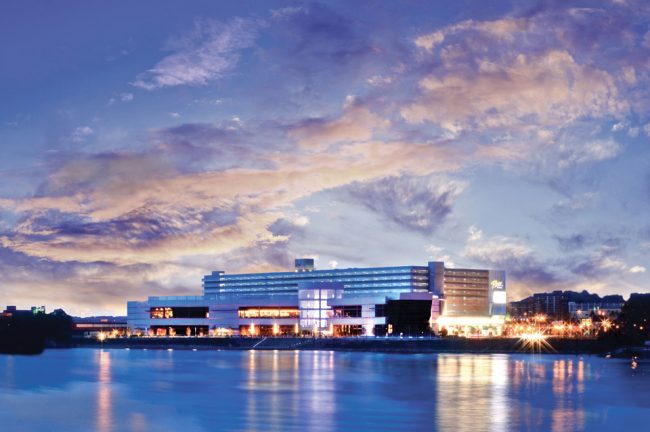
Here’s the latest update on who has a license to operate online poker in Pennsylvania:
| Brand | Online Casino License | Online Poker License | Operator |
|---|---|---|---|
| Harrah’s Casino | Yes | Yes | Scientific Gaming, 888 |
| Hollywood Casino | Yes | Yes | IGT |
| Mohegan Sun Pocono | Yes | No | Scientific Games |
| Mount Airy | Yes | Yes | PokerStars |
| Parx Casino | Yes | Yes | GAN, Kambi |
| Presque Isle | No | No | SB Tech |
| Rivers Casino | Withdrawn | Withdrawn | Rush Street Interactive |
| Sands Bethlehem | Yes | Yes | TBD |
| Stadium | Yes | No | Pending |
| SugarHouse | Yes | Yes | Rush Street Interactive |
| Valley Forge | Yes | Yes | IGT, GVC, Partypoker, Gan |
| MGM Resorts | Yes | Yes | Bwin.party |
Though no formal confirmation has come that Rivers won’t consider re-applying, the time frame in which the casino can do so has narrowed down significantly. Today, a single license costs $4 million.
It’s also interesting to see that two of the world’s largest poker operators, to name partypoker and PokerStars have chosen to affiliate themselves with only one property each.
Pennsylvania Online Gambling
Online poker Pennsylvania state laws are already well-defined today. With 13 properties entertaining the idea – or almost – of expanding online, PA is in a good place.
Poker is hardly the only activity that has benefited from the expansion into online gambling, with quite a few key verticals now being part of the offer:
- iLottery
- Video gaming terminals (VGTs)
- Daily fantasy sports (DFS)
- Sports betting
- Satellite casinos
Regulated Online Gambling – A potential billion-dollar opportunity for Pennsylvania
While Pennsylvania still makes most of its profits from the state’s land-based casino economy, this is about to shift rapidly and hopefully for the better. With the state’s residents waiting for the formal launch of the industry, most players who want to play do so on offshore sites, which we have ourselves vetted and play-tested.
Now that Pennsylvania has decided to legalize this activity, the economy is set to experience another revenue boom and create another sustainable source of tax revenue. Based on the reporting of Online Poker Report analyst and writer Rober DellaFave, a legalized online gambling industry in PA would generate significant economic windfall for the state:
- Pennsylvania will amass $230 million in the first year of legalizing the online gambling industry*;
- DellaFave expects PA to rake in $420 million in tax revenue over a five-year period;
- $120 million have been collected through licensing fees alone.
NOTE: These figures don’t reflect the latest changes done to the launch timeline, i.e. pushing the official launch to Q3, 2019. In a later analysis compiled by Chris Grove, Grove predicts $154 in tax revenue, $41 million of which will come out of online poker in the first year.
Pennsylvania will benefit from its legalized online gambling industry in purely monetary terms by collecting various payments, including:
- Upfront fees – Contributing up to $120 million from purchasing full $10 million licenses, licensing has been the main source of revenue in the pre-launch period;
- Revenue tax – Revenue tax is estimated to bring nearly a quarter of a billion in fresh proceedings for the state each year;
- Renewal fees – Renewal fees will be another source of revenue that will guarantee small top offs for the PGCB every five years.
The Interstate Compact and Shared Liquidity in PA
One of the key stimuli for online poker has been the prospect of joining the interstate compact with other states, including the ones that are already pooling their prize pools to offer a better alternative in terms of player base, availability, and admittedly – rewards. Presently, three states participate in the so-called shared-liquidity scheme:
- Nevada
- Delaware
- New Jersey
- Pennsylvania (possibly in Q3, 2019)
Today more than ever, the unknowns are pilling up. Pennsylvania is a populous state, but the share of unique poker player per capita is modest compared to the capacity that the licensed operators have.
One of the reasons why Rivers rescinded its application was concerns that it may not be able to compete against 13-odd online poker venues, to speak nothing of the offshore card room which might still appeal to Pennsylvania-based gamers.
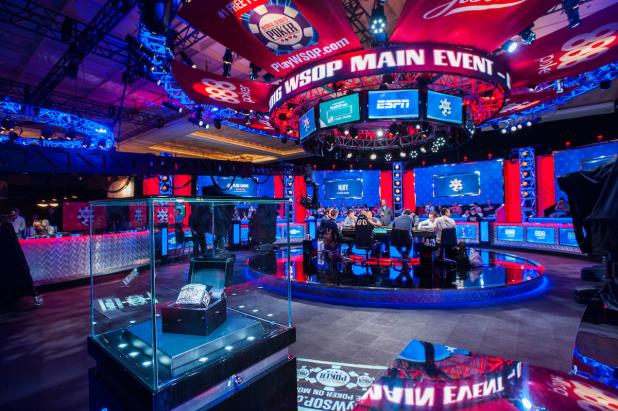
Interstate poker remains the most pressing issue, which is an absolute necessity to help bolster the activity not only at home in the Keystone State, but also across the United States, giving reason to places like Michigan to pursue a full-scale legalization, which is now pending.
The Wire Act can throw a spanner in the works, but this won’t go unnoticed with some states, including PA, choosing to litigate with the DOJ. Governmental and trade bodies from New Hampshire having already filed three individual lawsuits to dispute the measures outlined by the DOJ.
How the Wire Act Can Affect Online Gambling and Poker in Pennsylvania:
| NO INTERSTATE COMPACT | If the Wire Act Opinion is enforced, the interstate compact will be the first to be affected. DOJ attorneys will be allowed to pursue legal action against “wrongdoers”. |
|---|---|
| PA PLAYERS MAY NOT PLAY AT WSOP | PA players may not be able to play for an online bracelet at the upcoming and future World Series of Poker (WSOP) Main Events. |
| PLUMMETING REVENUE FOR STATE AND BUSINESS | If the Wire Act is enforced, the local population in PA won’t be sufficient to keep all poker networks busy, leading to shut-downs, losses for business, and smaller tax revenue for Pennsylvania as a whole. |
| ILOTTERIES | Online lotteries may not come under fire from the DOJ, especially now that New Hampshire is undertaking legal action, but as the Opinion stands, the lottery is vulnerable |
Why Wait for the Big Online Poker Boom? PA Live Poker Is Here!
While the state is readying up to welcome over 10 poker rooms, many casinos already provide gamers with great live poker options on-site, which comes as a nice alternative to offshore operators.
You can choose and play at:
- Parx Casino;
- Harrah’s Philadelphia;
- Hollywood Casino, Penn National Raceway Race Course;
- Mohegan Sun Pocono;
- Mounty Air Casino Resort;
- Sands Bethlehem;
- SugarHouse Casino;
- Rivers Casino;
- The Meadows Racetrack & Casino;
- Presque Isle Downs;
There are about a dozen tournaments held every few days. Some weeks are busier than others, and you can walk in any property at pretty much any time and expect to find players, though you might need to make sure you are coming around rush game hours for the best prize pools.
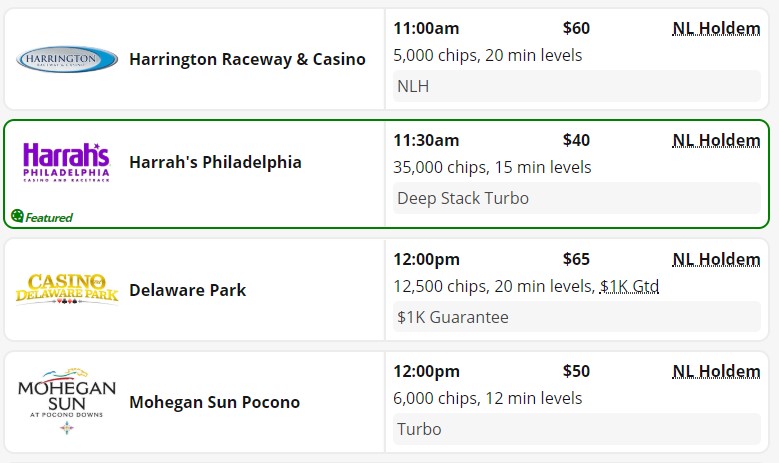
The majority of games are played in NL Hold’em with the levels varying between 10 and 20 minutes. Each property runs one or a few events at a time, and you can always find the full schedule either at Poker Atlas or the official website of the property that is closest to you or the one you want to play at.
When Is Poker Legal in Pennsylvania
Every state has a set of criteria mandating under what circumstances poker, online or offline, is permissible. As per the latest PGCB rules, the following regulations apply:
- Players must be 21 to participate;
- Sites need to use geo-localization software;
- No cross-state gaming allowed unless as part of an interstate compact;
- Online poker sites must pay 16% tax on their GR;
The laws are universal for both the land-based and future online poker industry, minus the provisions that simply won’t apply to the live venues.
Pennsylvania Finally Legalizes Online Gambling – The 2017 Turning Point
The uphill battle of legalizing online gambling in the state of Pennsylvania had been ongoing for five years when on October 30, 2017 the struggle finally ended as Gov. Tom Wolf signed the online gambling expansion into law.
Things developed quickly in the months to follow, including in May 2018, when New Jersey challenged and defeated PASPA, the legislation that was holding back the legalization of the sports betting industry, giving a fresh élan to the concepts of wagering, gambling and playing poker online.
- Range of trustworthy online operators
- Quick banking without delays
- Variety of payment options
- Awesome welcome bonuses and promotions
- Complete privacy and anonymity as you play
We’ve already explored the implications of a legalized poker industry in PA. Let’s move past speculation and delve into a little more detail now.
PA’s Online Gambling Tax Rates and Licensing Fees
One of the biggest hurdles that the state had to overcome on its road to legalizing online gambling was coming up with a tax rate that was agreeable by both the Senate and the House. After much back and forth, the tax rate issues came to a resolution, and both parties settled on online poker and table games to be taxed at 16%, while online slots commanded the highest rate – 54% – the same amount that the current 13 land-based casinos are subjected to for their slot machine revenues.
PA poker taxes at a glance:
- Online slots are taxed at 54%;
- Both online table games and online poker are taxed at 16% (lower than NJ);
- License fees cost $4 million apiece;
- All three licenses (poker, table games, spots betting) can be purchased for $10 million;
While the 16% tax rate for online poker and table games is comparable to those offered in the other 3 legal online gambling states, the 54% for online slots is more than double than the figure that PA’s land-based casino operators have said they’re comfortable with.
In addition, operators wanting to offer online gambling will have to pony up an eye-watering $10 million for all 3 gaming licenses, or they can go a la carte and purchase each gaming license individually for $4 million each. Compare this to the $400,000 that operators in NJ have to pay and it’s not at all exaggerating to call it extortionate.
Potential Online Gambling Revenue
We’ve already delved into the matter and there have been comprehensive analyses. Let’s jog your memory one more time, then.
Lawmakers in PA have estimated that the online gambling expansion will generate roughly $200 million in annual revenue. Initially, the combination of sky-high licenses fee and extremely high tax rates for online slots, it was feared that casino operators would see it as not enough meat on the bone and therefore be less interested than the state had anticipated.
Some fear that the salty taxation of slots will slow-down tax revenue, but the latest analysis still put the revenue at over $150 million a year. This is a pre-Wire Act estimation though, and if the Opinion is enforced, a re-evaluation of the industry will be required.
A Look at New Jersey vs PA
When we look at New Jersey and online slots, for example, we realize that the slots account for 70% of all New Jersey online gambling revenue, with table games accounting for 20% and poker the remaining 10%. This distribution, coupled with a flat tax rate of 17.5% for all games has enabled NJ’s online gambling market to flourish.
$400m Revenue from PA Licensing So Far
Mini casinos have generated nearly $130 million in licensing fees so far, making them one of the most profitable segments for Pennsylvania. Mini-casinos are also approved with the help of local communities and PGCB serving as a mediator.
Businesses can obtain an individual license for $4 million or opt for a package deal (no longer available) worth $10 million. So far, the state has generated nearly $95 million from such licenses.
Live casinos have been welcomed more readily than expected, with a total of six venues acquiring permits. As a result, $60 million have entered PA’s coffers and six brands can offer live gaming.
Regular casinos have so far paid nearly $80 million in total license fees to operate in Pennsylvania, with a handful of more licenses down the pipeline. Legalizing online gambling has occasioned a significant expansion of the land-based industry.
At the same time, we’ve seen the PA iLottery expand by introducing Daily Fantasy Sports (DFS) as well as rake in great revenue across lotto games, keno and virtual sport.
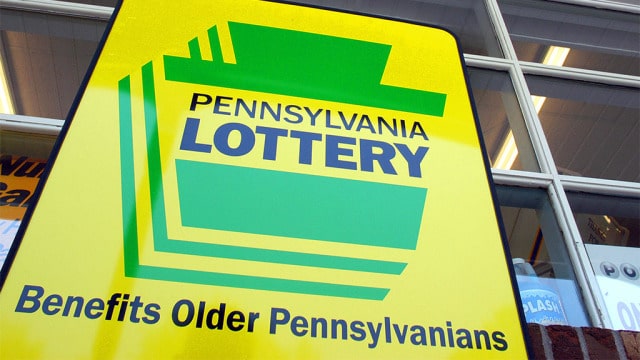
It’s true, though, that as far as speculation goes, some fear that PA may not see a success similar to what’s been achieved in New Jersey due to the excessive 54% tax for online slots, which will probably put off operators from acquiring the license in the first place, and even if they do, the cost of the tax rate will undoubtedly be passed on to the customers in the form of higher house edge on Pennsylvania online slots.
What This Means for PA Online Casinos Compared to Offshore Casinos
So, how exactly will PA online casinos fare against offshore casino sites?
Generally speaking, players are more inclined to play on legal and regulated online gambling sites than ones that are not. There are plenty of reasons for this, with the most important one being:
- Safety;
- Expedient banking;
- Regulatory mediation;
Playing on a legal and regulated site is infinitely safer and involves less risk than playing on an unregulated site. We know this to be true because we’ve seen it happen already in New Jersey. However, this is also assuming that the legal and regulated sites offer the same benefits as offshore sites.
At the end of the day, players are looking to win money. So, even if the site is legal, if it presents far less chance for a player to win, players are less likely to gravitate towards it versus offshore sites. We have put a list with trusted offshore card rooms which remain America’s most frequented poker sites outside Pennsylvania.
How Is Online Casino Revenue Spent in Pennsylvania and New Jersey
Here’s a comparison of how $1 of online casino revenue is spent in Pennsylvania and New Jersey:
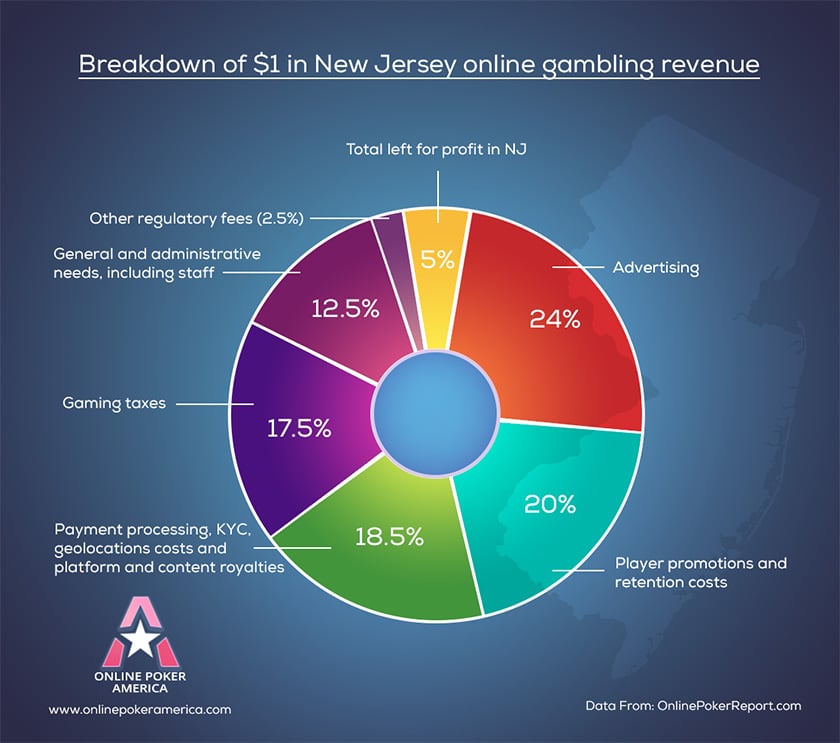
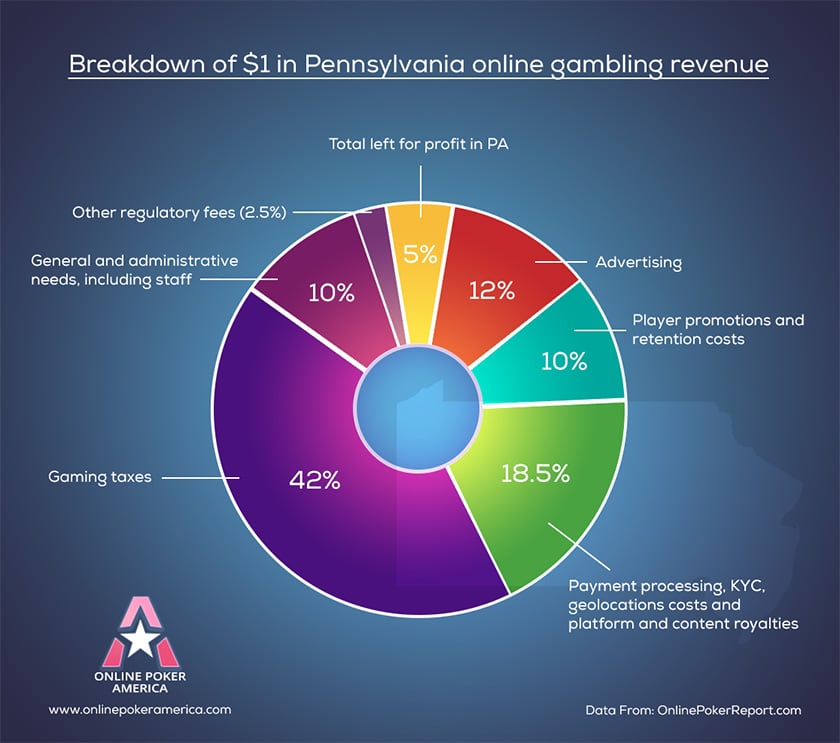
For every $1 in online gambling revenue, Pennsylvania has to spend:
- 42% of it on gaming taxes
- 5% of it on processing payments, KYC, and royalties
- 10% of it on basic administrative costs, such as salaries
- 5% of it on other regulatory fees
- 12% of it on Advertisement
- 10% of it on promotions and player retention
- 5% of it will be taken as profit
For every $1 in online gambling revenue, New Jersey has to spend:
- 17.5% of it on gaming taxes
- 18.5% of it on processing payments, KYC, and royalties
- 12.5% of it on basic administrative costs, such as salaries
- 2.5% of it on other regulatory fees
- 24% of it on Advertisement
- 20% of it on promotions and player retention
- 5% of it will be taken as profit
Based on those figures, although the profit potential is the same for both models, the difference is the amount of money PA has to spend on advertising and promotion compared to NJ. Because of the effective gaming tax rate being more than double of that in NJ, Pennsylvania has less than half the amount to promote its online casinos, which means less exposure, and therefore less total revenue.
When you put all this together, the significance of the 54% tax rate on online slots becomes clearer, and isn’t exactly conducive for encouraging players to play on regulated sites within PA versus off shore sites.
Delaware and New Jersey are prime examples of how high tax rate can hinder growth, as the former has struggled to gain momentum with its online casino market, while the latter is thriving.
PA Online Poker Room Advantages
Despite the fact that online poker accounts for less than online slots and table games of New Jersey’s total online gambling revenue, online poker rooms in Pennsylvania will have a distinct advantage because of the far lower tax rate of 16%.
This means that operators have a far larger budget to spend on advertising and promotion to get more public exposure and draw in more players without eating into their profit margins.
In addition, the regulated online poker market in the US received a massive boost recently as the New Jersey joined together with Delaware and Nevada to pool all their online poker players, creating more cash-games and larger tournament guarantees. PA, which has a bigger population than those three states combined, will likely join the compact sooner or later, potentially doubling the existing player pools.
This will give players more incentives to want to play at PA’s online poker sites compared to offshore sites.
Will the Tax Rates Be Adjusted?
For the time being, this is very unlikely.
Although most of the 13 casinos have expressed their dissatisfaction with the tax rates, particularly insofar as slots go, the lawmakers clearly understand the risk that they are taking and have decided to stick to it.
They believe that despite the complaints, operators will still purchase the licenses and produce a sizeable online market that will generate more taxes than if they opted to offer licenses at a lower fee, resulting in an even bigger market. They have been largely right:
- 7/13 licenses to operate online poker;
- 10/13 licenses to operate online casinos;
- 7/13 licenses to operate sports betting;
In the event that many licenses remain unclaimed, or the online market develops poorly in comparison to NJ, then lawmakers might have their hands forced into revisiting the tax rates and making necessary adjustments.
When Will We See the First PA Poker Site?
The Pennsylvania Gaming Control Board (PGCB) began issuing licenses in 2018 in three stages, giving operators slight financial breaks if they agreed to buy all licenses in a bundle. As a result, businesses interested in the purchase of a license could opt for:
- Licenses could be bought as a bundle during the first 90 days as a bundle, including poker, table, and online casinos, at a total cost of $10 million;
- Between 90-120th day, operators had to purchase individual licenses for $4 million each;
- Beyond the 120th day, any leftover licenses are now handled to qualified businesses for $4 million apiece;
The good news is that Pennsylvania has been in talks with New Jersey for several years now, and likely will have benefited a lot from NJ’s experience of regulating online gambling.
Couple that with the fact that the online gambling expansion bill seems to have been specifically designed in a way that enables regulators to expedite the approval process, as has been largely the case.
One unexpected development that threatens to scupper the legalization efforts is the Wire Act, which could have a disruptive effect on the entire industry. PA has already said that it will contest any attempts to have its industry shut down.
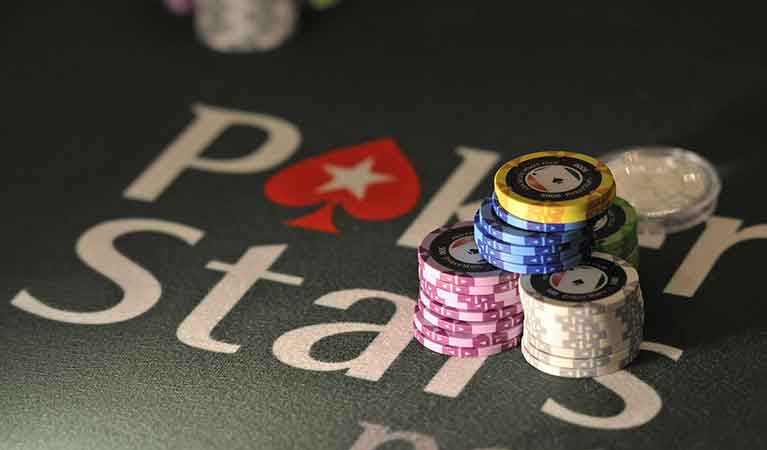
Acknowledging the new challenges, the PGCB has decided to defer the official launch of the industry, postponing it until Q3, 2019, roughly the same time the Wire Act will also arrive in full force.
Pennsylvania’s Online Poker – A Final Thought
Pennsylvania is definitely entering 2019 on a strong footing, having expressed its readiness to fight off the DOJ and successfully sold licenses to multiple respected brands in the state. Initial fears that the high tax rate would turn casinos away have failed.
The steep 56% levy on online slots has been quite tough, and in a sense, advertisement funds aren’t great in PA, but as many as 13-odd casinos have decided that there is enough reason to seek and obtain a license for various online gambling activities, including poker.
The big battle in 2019 will be whether Pennsylvania can join the other states that share a liquidity scheme today and effectively double America’s online population that plays on poker websites legally in PA and beyond.
Common Questions
Online poker was legalized in Pennsylvania on October 30, 2017. Pennsylvania has taken its time legalizing the online gambling industry. Specifically, when PA Governor Tom Wolf signed H 271 into law on October 30, 2017, he officially signalled Pennsylvania’s readiness to welcome online gaming verticals, and specifically online poker.
As a result, the Pennsylvania Gaming Control Board (PGCB) has been tasked with creating the laws that would bind the legislation. In August, 2018, the board finally started issuing licenses as part of a $10 million package and independently at $4 million per individual license.
Originally, Pennsylvania had to see online poker arrive on June 15, but that move was postponed, because of a new Wire Act Opinion issued by the Department of Justice’s Office of Legal Counsel. Poker is rolling out before 2020 is out and the clear priority has been put on casino products.
On average, 500+ players at any given time, though this is an estimate. Gauging the numbers for the Keystone State is still too early as online card rooms haven’t launched in full yet. There are around seven estimated digital skins coming that will be offering poker to one of the most populous states in the country. Hopes are that Pennsylvania will be joining Delaware, Nevada, and New Jersey as part of the state compact.
In Pennsylvania, the legal age to play online poker is 21. Pennsylvania has stuck to the national age for online gambling, including poker. Individuals are allowed to join such competitions only if they are 21 years of age or older. There has been no public debate as to what the correct gambling age should be. Yet, the state allows individuals aged 18 and older to partake in horse racing betting contests, which is one of the curious thing about US state. While they agree that gambling should be prohibited until 21, most other activities, including lotteries, sports betting, bingo and horse racing are rather accessible.
Tom Wolf signed H 271 that effectively made all online gambling – and by extension poker – legal in the state of Pennsylvania. This way, the Keystone State had become the fourth place in the United States to do so. This happened in October, 2017, and it took Pennsylvania two full years to roll out the industry in full, although online poker only came out towards the later part of 2019 with casinos focusing exclusively on online casino products first.
The piece of legislation to make online poker legal in PA was H 271. It was sponsored by Jason Ortitay who managed to pass it through all houses of legislation with bi-partisan support, de facto giving Pennsylvania its online gaming industry. Here are what the bill says specifically:
1. All participants must be at least 21 years old.
2. Operators will pay 16 percent tax on online pokerstars.
3. Geolocalization software must be used to ensure the safety.
4. All participants are subject to thorough background checks.



